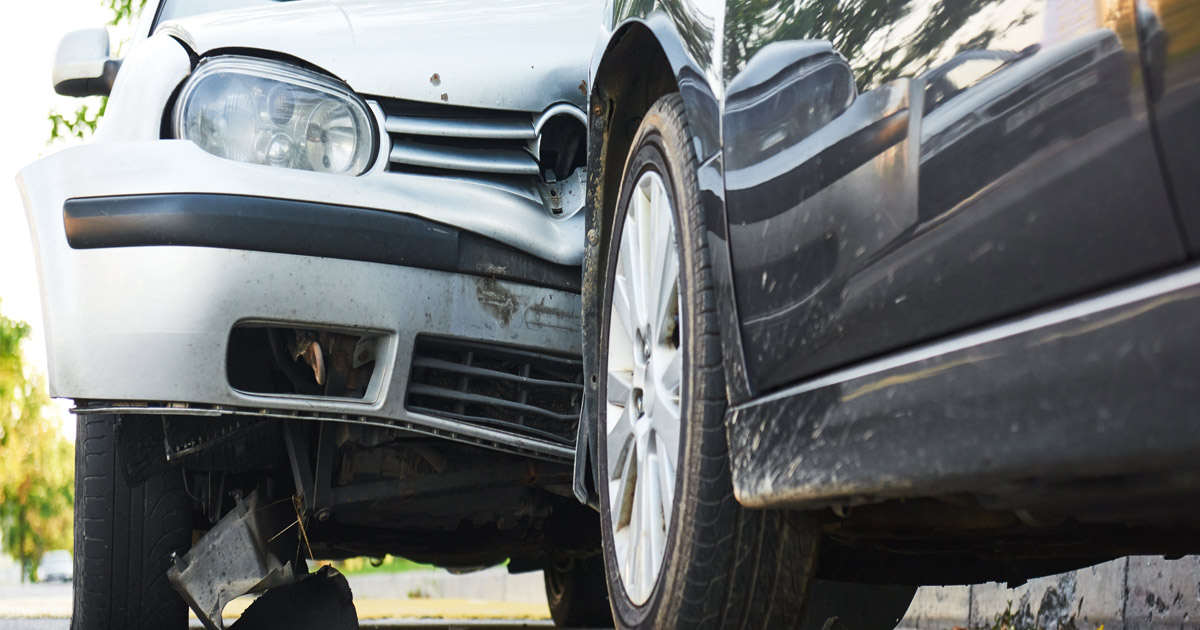Car accidents happen for a variety of reasons, including distracted driving, poor road conditions, and drunk driving. Proving liability for these types of wrecks is generally a straightforward process, which makes a personal injury claim easier to file. However, what about an accident that was caused by an incapacitated driver with a health issue? Since this happens more often than one might imagine, these types of accidents are worth exploring from a legal perspective.
Drivers with Compromised Health Pose a Risk to Others
Sometimes, a medical condition can cause a driver to lose control of their vehicle. Some drivers are aware they have a condition that could potentially make it dangerous for them to drive. Perhaps they have a health issue that leaves them prone to losing consciousness or they have seizures.
What Medical Conditions Can Cause Drivers to Lose Control of Their Vehicles?
A diagnosis of many common conditions may require individuals to be extra vigilant for signs and symptoms while behind the wheel, such as the following:
- Cognitive decline and dementia
- Diabetes
- Dizziness, vertigo
- Epilepsy and other seizure disorders
- Heart disease
- Hearing or vision impairment
- Musculoskeletal problems
- Narcolepsy
- Neurological disorders
- Psychiatric disorders
- Respiratory disease
- Traumatic brain injuries
Having one or more of these conditions does not necessarily mean a person is never able to drive again. In some cases, legal limitations are placed on their license, depending on their condition.
For example, some drivers may be permitted to only drive during the day if their vision is impaired. Others may be required to stay off busy highways and other high-traffic areas. Restrictions would depend on the official medical diagnosis and how that condition affects one’s ability to operate a motor vehicle.
Can Prescribed Medications Impair a Driver?
Many common prescription and over-the-counter medications come with a warning stating that they cause drowsiness and to not operate heavy machinery after consumption. If the driver who caused a crash was found to have taken medications that impact driving, they will more than likely be held liable for the wreck. Additionally, the liable driver may face punitive damages for acting recklessly.
What Must the Plaintiff Prove?
Cases involving a driver who has been diagnosed with a known medical condition are challenging but not impossible to prove. A plaintiff who was injured by a driver suffering a medical crisis wants to prove the driver was aware it was unsafe to drive and should have taken steps to manage their condition. If the court agrees, the plaintiff may be awarded compensation for losses they suffered because of the crash, such as medical bills, lost income, and pain and suffering.
Why is it Important to Talk to a Doctor About a Medical Condition?
Discussions about safe driving are important ones to have with a physician while being treated for any health issues that can impact coordination, hearing, vision, and motor skills. A primary care physician evaluates the patient’s overall health history, family risks for certain diseases and conditions, current medications, and concerning symptoms.
An annual wellness check should be a part of everyone’s overall health plan. These visits are good tools for early diagnosis of certain conditions that can be managed well with early intervention. Routine bloodwork and other screenings are the key to detecting disease and managing it to help the person maintain good overall health and well-being, including the ability to safely drive.
When it comes to driving, the doctor will assess the following:
- Cognitive abilities
- Functional abilities
- Hearing
- Overall health
- Vision
From there, the doctor may order more tests or recommend that the patient sees a specialist to further assess their health concerns. It is important to confirm that the driver has no health problems that would keep them from driving.
Driver Safety Resources for Seniors
An elderly driver is more apt to have medical conditions. Some helpful safety resources for older drivers include:
GrandDriver
It is incredibly important that senior drivers get their skills checked often as they approach the age of 65 years old. Virginia GrandDriver is a unique public safety campaign that raises awareness about the risks that elderly drivers face. This campaign provides resources to help seniors remain independent as long as it is safely possible.
CarFit
CarFit is another helpful resource, it helps seniors feel comfortable in their vehicles. With age, the body tends to shrink and mobility is decreased. CarFit links seniors with trained technicians who adjust foot pedals, mirrors, and the steering wheel for an ideal fit.
AARP
The American Association of Retired Persons (AARP) also offers a low-cost driver refresher course called Smart Driver. The online class covers issues affecting older drivers, including the following:
- How medication impacts driving
- Physical changes that happen with age
- How to adjust driving to adapt with age-related changes
- Reducing driving distractions
- Proper use of restraints and anti-collision technology
Completing the AARP safe driving course can help seniors remain safe and confident behind the wheel.
Unexpected Medical Crisis While Driving
While known medical issues can be managed to avoid preventable motor vehicle wrecks, others may go undetected until it is too late. When a medical event causes a driver to lose control and collide with another vehicle, pedestrian, or object, the results can be disastrous and even fatal.
If it is found that a driver was not aware of the medical issue related to their wreck, it will be more challenging for an injured party to pursue compensation.
What is the Sudden Emergency Doctrine?
The Sudden Emergency Doctrine is one defense that can be used in these circumstances. It refers to anyone experiencing an urgent, dangerous experience occurring through no fault of their own. This defense asserts that the defendant is otherwise a reasonable person, and while they may not have taken the wisest course of action during the emergency, they should not be held liable for their actions. In other words, a person’s negligent actions are essentially forgiven if there was a legitimate emergency.
It is worth noting the Sudden Emergency Doctrine defense is not only used for medical emergencies. It has been used when drivers encounter animals or other obstructions in the road.
I Was Hurt by a Medically Impaired Driver, What Should I Do?
While it is understandable to forgive the driver who caused a wreck through no fault of their own, that does not mean others injured in the crash should have to pay their own medical bills and other expenses related to the accident. In fact, some people injured in accidents caused by medical emergencies feel guilty about suing these incapacitated drivers.
However, the costs associated with a serious car accident can be daunting. A car accident victim may be able to collect economic damages or non-economic damages after a crash. Economic damages include financial losses after a crash, such as hospitalization, surgery, physical therapy, property damage, and lost income. Non-economic damages are harder to obtain, including pain and suffering, emotional trauma, and loss of companionship.
For plaintiffs that are unsure about taking legal action after this type of accident, they should contact a respected lawyer. A lawyer will assess the case and determine the best course of action.
Virginia Beach Car Accident Lawyers Handle Car Accident Cases Involving Medical Emergencies
If you were involved in a car accident that was caused by another driver’s medical condition, contact one of our Virginia Beach car accident lawyers today. Cases involving unplanned medical emergencies require skilled legal guidance to prove causation. At East Coast Trial Lawyers, we help car accident victims get the compensation that they rightfully deserve. Call us at 757-352-2237 or complete our online form for a free consultation. Located in Virginia Beach, Virginia, we serve clients throughout Chesapeake, Eastern Shores, Hampton, Newport News, Norfolk, Portsmouth, and Suffolk, Virginia, as well as North Carolina and nationwide.


